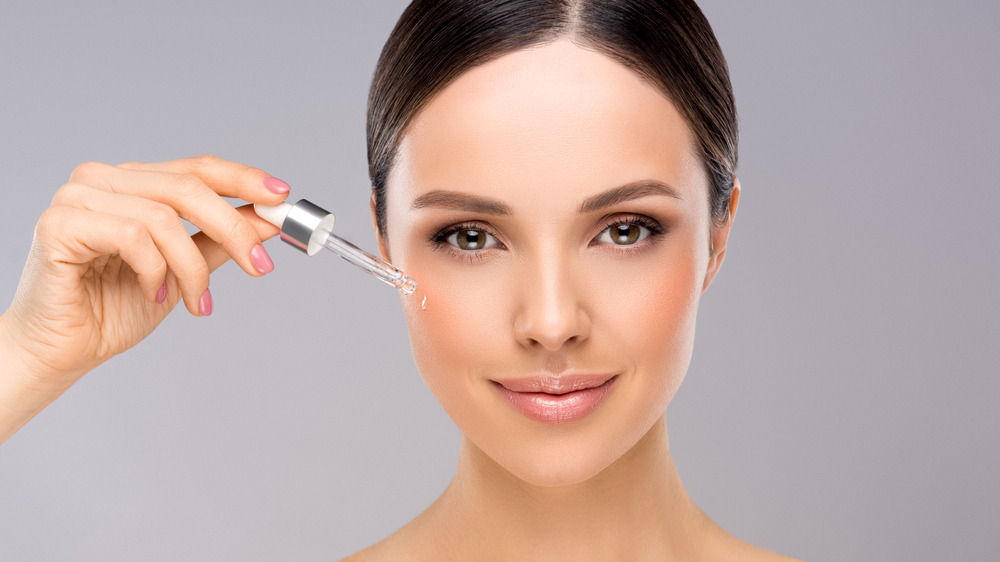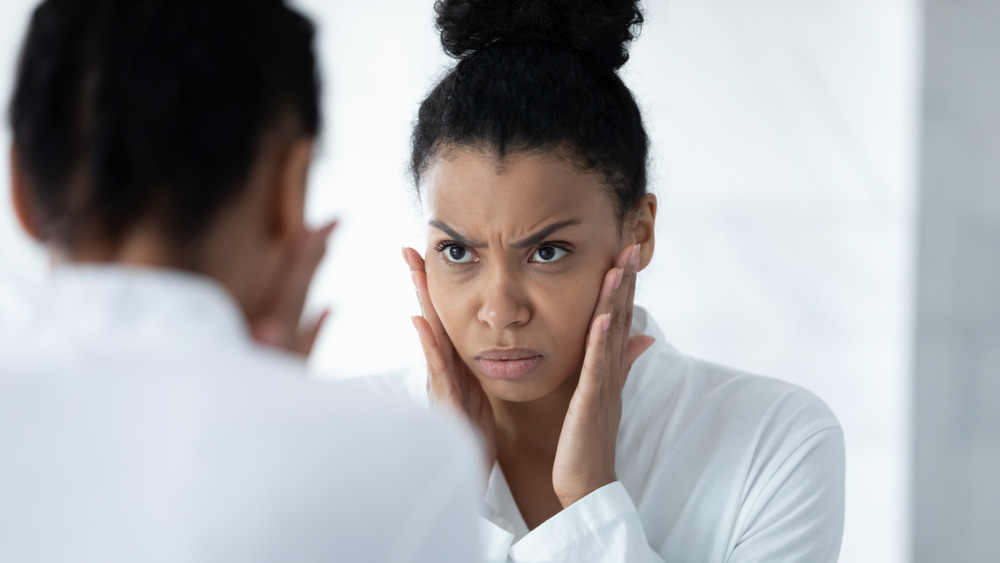Using Retinol Every Day Will Do This To Your Face
People are raving about retinol, an anti-aging skincare product derived from vitamin A. This compound, usually in a serum, teaches your skin how to generate more collagen by speeding up cell turnover. Retinol is known for its wrinkle reducing, brightening, tightening, and acne decreasing benefits, which, according to dermatologist Mona Gohara, M.D., is magical for aging skin because "Up until your early 30s, your cells turn over every 28 days, creating a fresh layer of untouched, pristine skin...after you hit your mid-30s, your cell regeneration slows down, turning over every 50, 60, or 70 days," via (Marie Claire).
Licensed aesthetician Christopher Panzica tells Healthline that "When applied topically, retinol can help bring your skin cells and function back to a more youthful state." Panzica reports that retinol helps to keep pores unclogged, which minimizes acne and "improves texture, fine lines, and brightness of the skin." Another reason to try the anti-aging serum, according to Los Angeles based board-certified dermatologist Tsippora Shainhouse, "Retinol is the only medication that has scientifically-proven anti-aging properties," which explains why many dermatologist recommend the product (via Oprah Mag).
Who should use retinol
According to Healthline, retinol is safe for any person to use on their skin. However, there are some factors to be aware of. If you are new to using retinol, Panzica says to use caution as some people may experience redness, irritation, dryness, and peeling. He recommends beginning with a pea-sized amount in the evening, a few times a week, stating, "Just remember that starting low and slow wins this race."
Dr. Gohara suggests using the mildest of retinols (about 0.2 percent) at the start of your anti-aging skincare journey, and only increasing the dose after a full year of use. Research show that, regardless of the dose you choose, your skin will reap the rewards of retinol use over time, so working with the smallest dose is still effective (via Marie Claire). While the benefits of using retinol are plentiful, it does take some time to see them come to fruition. It can take up to six months for OTC retinols to start working for fine lines, wrinkles, and sun damage — although you may see acne improve sooner.
Of course, the best way to treat your skin is by discussing your options with a dermatologist or skin care professional, who can help you choose products that will deliver the best results for your individual needs.


